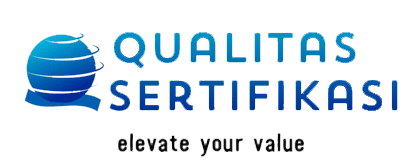The Crucial Role of ASEAN in Shaping Aviation's Future with Sustainable Aviation Fuel
The aviation industry, standing at a pivotal crossroads, is confronted with an urgent imperative to make substantial reductions in its carbon footprint. As a sector that significantly contributes to global CO2 emissions, the strategic shift towards Sustainable Aviation Fuel (SAF) is not merely an environmental obligation but a vital survival strategy in the face of evolving global challenges. Although SAF presently constitutes only a fractional share of total jet fuel consumption, its potential to drastically reduce emissions by up to 90% positions it as a cornerstone in crafting a sustainable future for the aviation industry.
The multifaceted nature of the transition to SAF encompasses not only technological hurdles but also formidable financial challenges. Projections indicate that by 2030, this shift could translate into an increase in ticket prices ranging from $3 to $14, with a further anticipated rise of $13 to $38 by 2050. These figures underscore the considerable investment required from both producers and consumers, emphasizing the intricate balance between economic viability and environmental responsibility necessary for forging a sustainable path forward in aviation.
As of 2022, over 30 airlines have announced their plans to shift to sustainable aviation fuel (SAF). In November of this year, the Association of Asia Pacific Airlines (AAPA) pledged to achieve a SAF utilization target of 5% by 2030. The region’s airlines represent more than one-third of global passenger and air cargo traffic. In September, the number of international air passengers in Asia-Pacific reached 79% of 2019 levels, which is lower than other regions that opened their borders earlier. However, demand is robust with revenue passenger kilometers growing by 171% in the first nine months of 2023, compared to the same period in 2022.
AAPA Director-General Subhas Menon stated that “SAF is both essential and desirable for the aviation industry.” He added that SAF production represents a new growth and income opportunity for states, as well as for waste, agriculture, and fuel industries globally. To transition to an environmentally sustainable international aviation industry, government policies that encourage the production and take-up of SAF worldwide are needed.
According to an Asian Development Bank study, Southeast Asian countries should consider policies such as “price floor support for the early stages of SAF production and a regional mandate requiring a minimum amount of SAF with a gradual increase to ensure long-term sustainability targets are met.”
In this dynamic landscape, the ASEAN region emerges as a potential global leader in SAF production, endowed with a unique advantage due to its abundant feedstock resources, including used cooking oil and palm oil residues. With a significant share of potential feedstocks such as used cooking oil (UCO), palm oil mill effluent (POME), and palm fatty acid distillate (PFAD), six ASEAN countries—namely, the Philippines (1%), Myanmar (1%), Vietnam (2%), Thailand (5%), Malaysia (25%), and Indonesia (66%)— collectively hold the potential to contribute over 16 million metric tonnes of waste and residue oil annually for SAF production. This underscores the region's strategic advantage in the global shift towards sustainable aviation, with the potential to make a profound impact on a global scale and set a precedent for other regions to follow.
The realization of widespread SAF adoption in ASEAN necessitates a robust and collaborative effort. This entails not only the formulation of supportive policies but also the development of sustainable financing solutions and the creation of economies of scale to enhance the accessibility and cost-effectiveness of SAF. It's a collective journey that requires the active engagement of governments, financial institutions, and consumers alike, highlighting the interconnectedness of all stakeholders in shaping the aviation industry's sustainable future.
Moreover, the transition to SAF transcends mere production and adoption; it equally revolves around ensuring that these alternative fuels meet stringent environmental and sustainability standards. This is where certification bodies like PT Qualitas Sertifikasi play a pivotal role, acting as guardians of adherence to international standards. These bodies provide the necessary oversight and assurance that SAF producers comply with stringent criteria, ensuring the environmental integrity of these fuels, exemplified by certifications such as ISCC CORSIA.
ISCC, recognized globally as a comprehensive system for sustainability certification, encompasses all sustainable feedstocks, ranging from agricultural and forestry biomass to biogenic wastes and residues, and renewable energy. The specific focus of ISCC CORSIA on the Carbon Offsetting and Reduction Scheme for International Aviation aligns seamlessly with the overarching global framework aimed at achieving carbon-neutral growth in the aviation industry.
For consumers, the knowledge that SAF is certified to meet international sustainability standards serves as more than just information; it's a reassuring guide. This awareness empowers them to make informed choices and actively support airlines that are at the forefront of embracing SAF, thus transforming into influential participants in the industry's transition towards greener practices. In this intricate web of stakeholders, certification bodies play a pivotal role, acting as a bridge between producers, consumers, and regulators, ensuring transparency and fostering trust in the market.
As the aviation industry embarks on this transformative journey, the collaborative efforts of diverse stakeholders will undoubtedly shape the trajectory towards a more sustainable and environmentally responsible future. This collective commitment will not only define the industry's response to climate change but also set a precedent for other sectors, showcasing the potential for collaboration to drive positive global change.
If you're interested in learning more about SAF and ISCC CORSIA, please give us a
call or visit our
website. We would be happy to assist you!
Recent posts
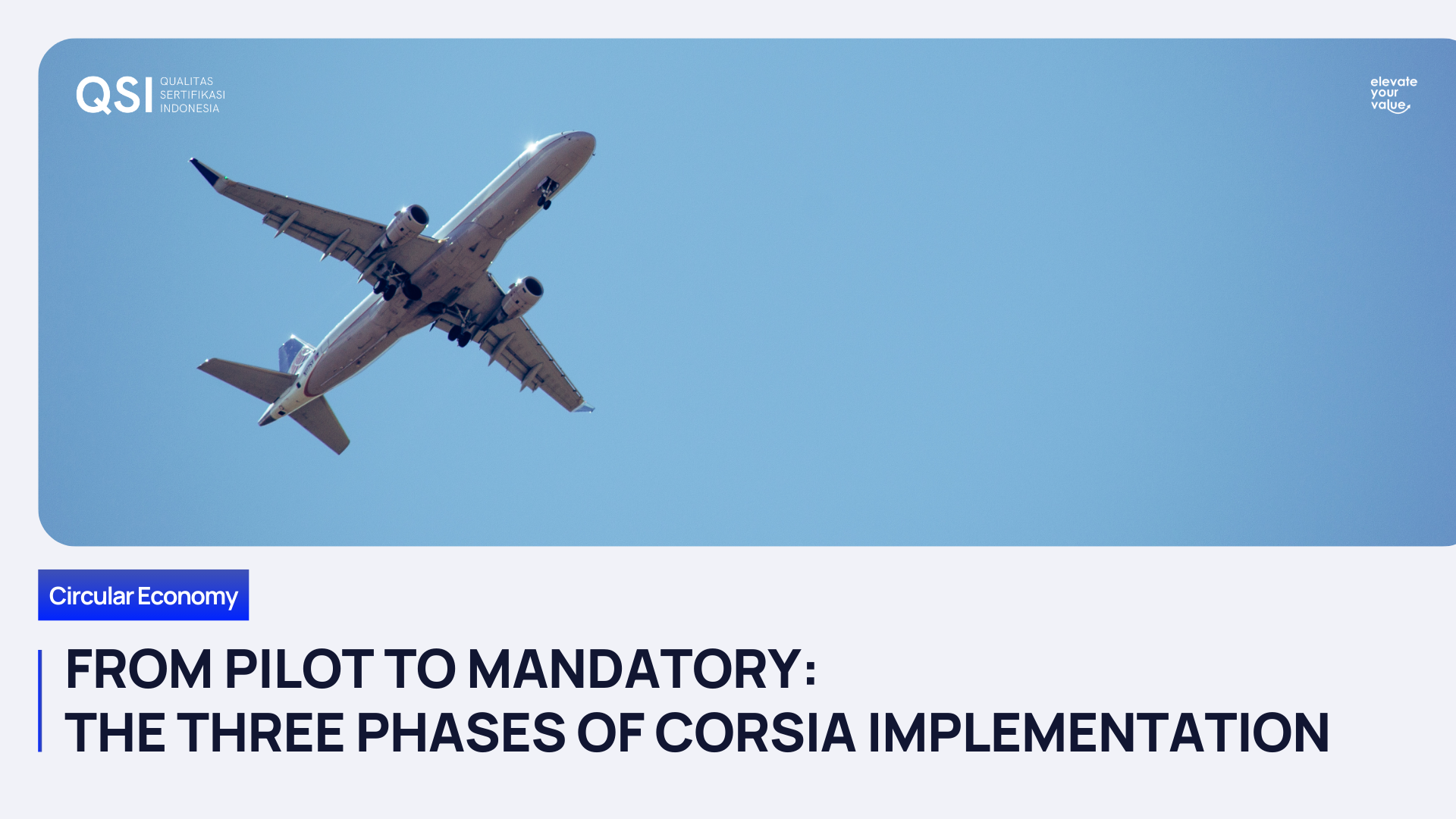
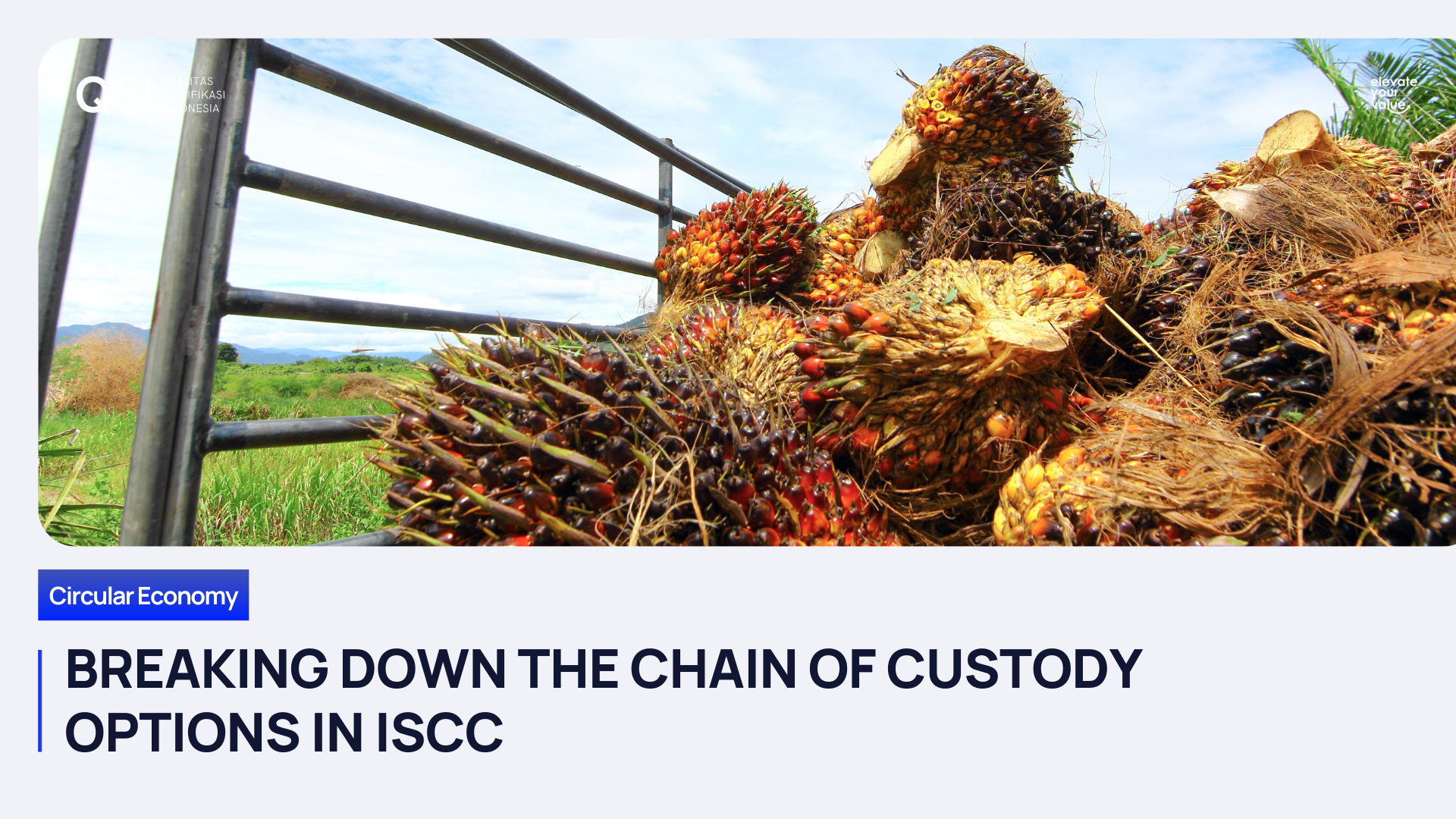
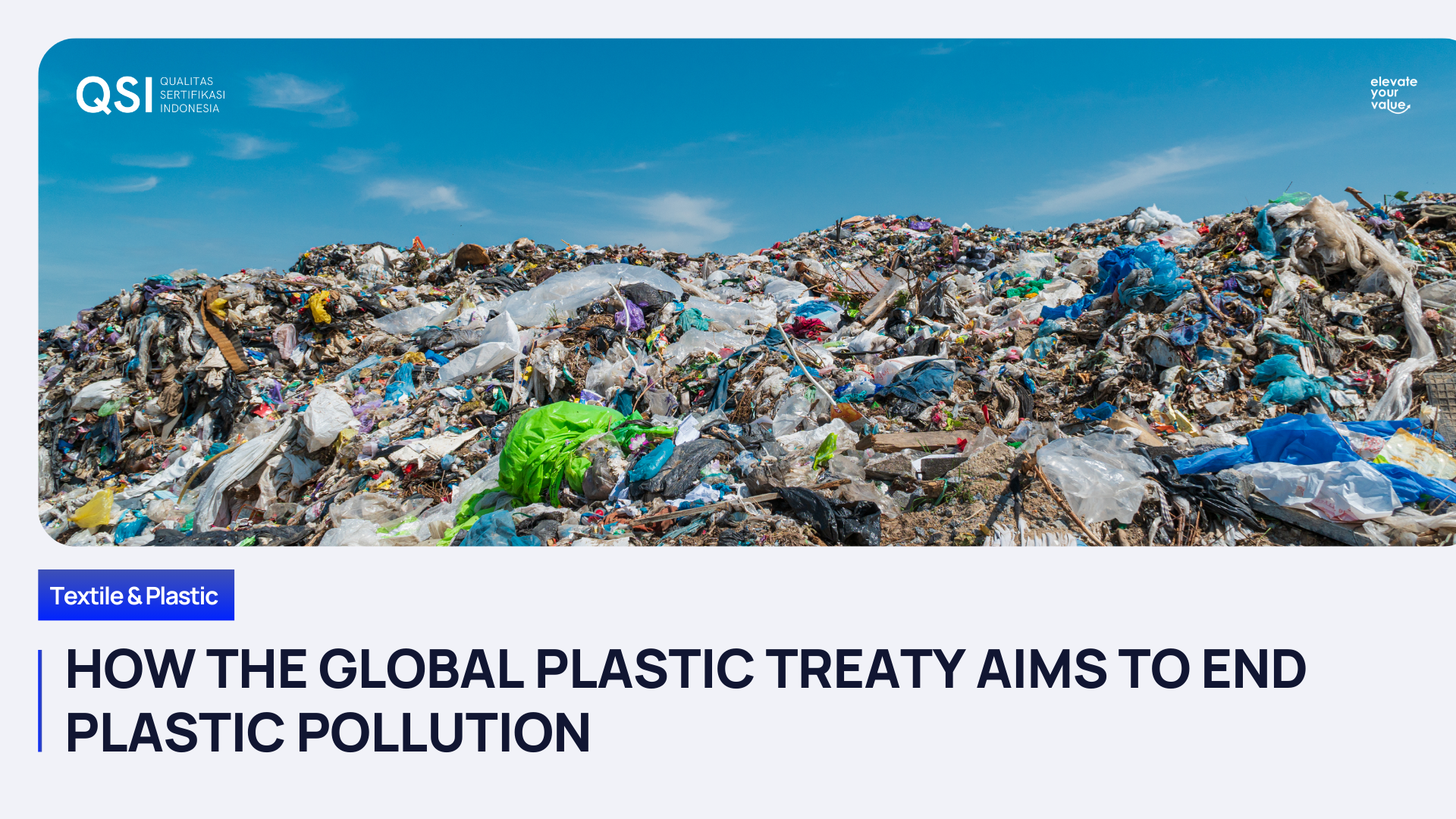
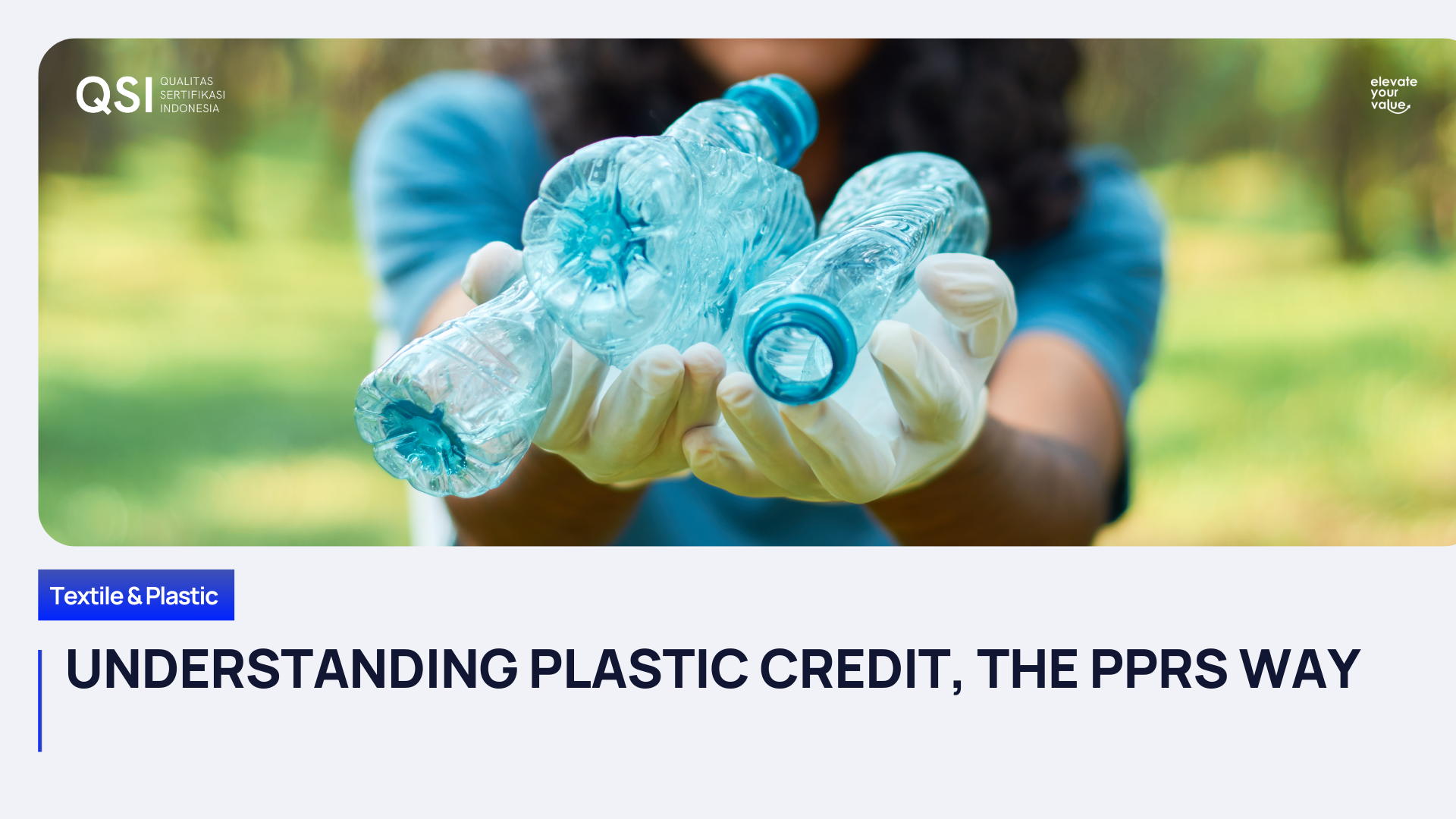
Drop us a line
Contact Us
We will get back to you as soon as possible.
Please try again later.
Share



General Inquiries
Phone
+62 21 2949 1946
Headquarter
The CEO Building, Level 12th
Jl. TB Simatupang No. 18C
Cilandak Barat, Cilandak
Jakarta Selatan, DKI Jakarta 12430
Indonesia
Operational
Menara Sun Life, 7th Floor
Jl. Dr. Ide Anak Agung Gde Agung Blok 6.3
Kuningan Timur, Setiabudi
Jakarta Selatan, DKI Jakarta 12950
Indonesia
Programs
Quick Links
Qualitas Sertifikasi Indonesia
PT Qualitas Sertifikasi Indonesia
